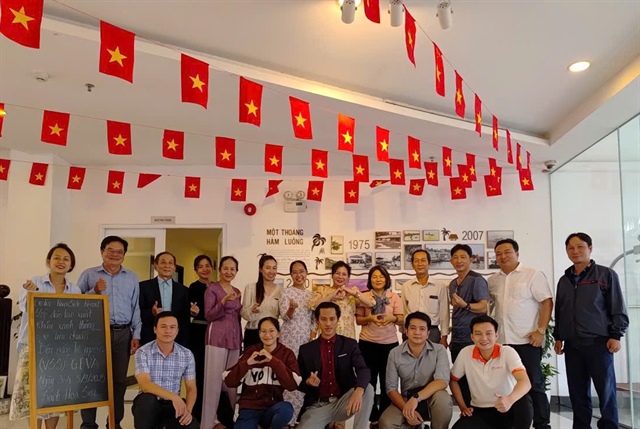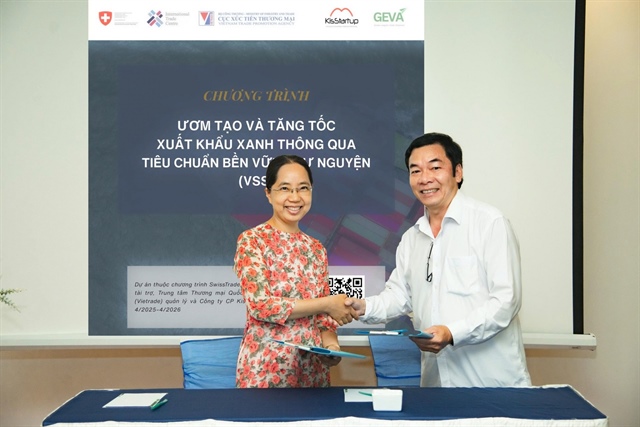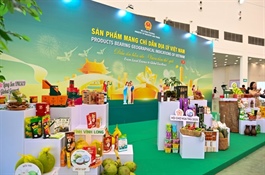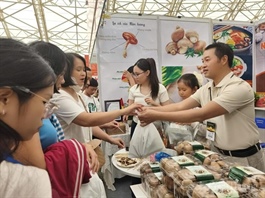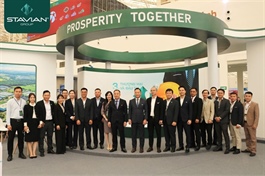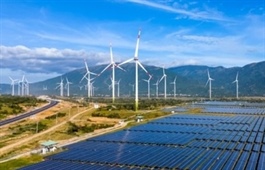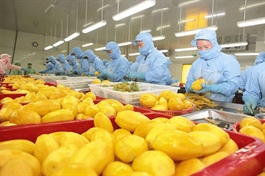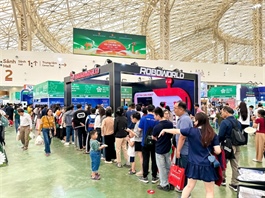Empowering the Mekong Delta’s sustainable export future
Empowering the Mekong Delta’s sustainable export future
By aligning local agricultural strengths with global sustainability standards, the Green Export Incubation and Acceleration (GEVA) project is helping Mekong Delta enterprises chart a greener and more resilient path towards international markets.
As international markets tighten technical barriers and prioritise sustainability standards, Vietnamese agricultural exporters are facing unprecedented challenges. In this shifting trade landscape, adopting green and sustainable business models has moved from being an option to an imperative.
|
From September 3-5, the GEVA project organised an intensive “Sustainable Green Export” training programme in Ben Tre city, marking a significant milestone in strengthening the export readiness of enterprises and cooperatives across the Mekong Delta. The programme aimed to help local businesses integrate global sustainability standards with their unique regional strengths, setting a new direction for value creation and global competitiveness.
Linking local agricultural strengths with sustainability standards
The training brought together enterprises from multiple Mekong Delta provinces, representing key industries such as agriculture, food processing, aquaculture, fruit production, and handicrafts. These sectors hold enormous export potential, yet they are increasingly challenged by the growing sustainability and traceability requirements imposed by global markets such as the EU and the United States.
|
Designed with strong practical orientation, the programme provided a comprehensive framework for businesses to understand, assess, and apply environmental, social, and governance principles and Voluntary Sustainability Standards (VSS). Participants were equipped with self-assessment tools to measure their “green readiness”, identify strengths and gaps, and build actionable roadmaps towards sustainable export practices.
A key highlight of the programme was its focus on connecting VSS compliance with the distinctive agricultural strengths of the Mekong Delta. According to multiple FAO studies, leveraging regional specialities – such as Ben Tre’s green pomelo, Hoa Loc mango, Soc Trang fragrant rice, or Ca Mau shrimp – alongside sustainability certification can significantly increase product value and enhance national branding in the global marketplace.
International organisations have consistently emphasised that VSS adoption not only leads to higher product value but also improves market access, strengthens consumer trust, and fosters sustainable local development. For the Mekong Delta –one of the regions most vulnerable to climate change – this approach offers a dual benefit: economic growth aligned with ecological preservation.
Sustainability as investment, not cost
“The younger generation of consumers, who are deeply aware of sustainability and green consumption, are driving global markets towards higher environmental and social standards,” said Nguyen Dang Tuan Minh, CEO of KisStartup.
“Young consumers are willing to pay for sustainably certified products, pushing global brands to demand the same from their suppliers. For Vietnamese exporters, ignoring this trend and neglecting VSS integration would mean being left out of international supply chains,” she added.
Through interactive sessions and real-world exercises, the programme encouraged participants to view sustainability not as a compliance burden but as a long-term investment in competitiveness and resilience. Businesses learned how to tell their “green stories” effectively, aligning with seven key global consumer trends currently reshaping buying behaviour.
One of the most engaging parts of the training was the field trip to the Ben Tre Green Pomelo Cooperative, where participants observed firsthand how sustainable production models are implemented in practice. The visit offered valuable insights into traceability systems, quality management, and social responsibility in action.
Discussions with cooperative representatives revealed how local farmers transformed challenges into opportunities by integrating sustainability standards and building brand equity through community-based, environmentally responsible farming.
The session also introduced digital tools and AI platforms such as ChatGPT and Perplexity as “smart assistants” to help businesses improve communication, storytelling, and marketing efficiency while maintaining cost-effectiveness.
Strengthening collaboration for a green transition
|
The training concluded with the signing of a MoU between Nguyen Dang Tuan Minh, CEO of KisStartup, and Nguyen Khac Han, director of the CSAT Ben Tre Project Management Unit. The agreement marks a strategic commitment to bringing practical training and capacity-building solutions closer to local enterprises, reinforcing a shared vision for sustainable, green export growth.
While the training programme has officially concluded, it represents only the beginning of a broader journey. In the next phase, the GEVA project will continue to nurture and accelerate enterprises through tailored support courses – from VSS implementation and brand development to sustainable market linkages.
For Mekong Delta enterprises, the path towards green exports is no longer a distant concept but a tangible direction, one that blends local identity, environmental responsibility, and global opportunity.
- 09:00 28/10/2025


